

20 innovative edtech projects from around the world
Michael trucano.

1. ALISON ALISON provides free online courses. Considered by some to be the first 'MOOC' (a characterization that others may strongly contest , most people credit these folks ), it boasts a large number of learners in developing countries. 2. BRCK BRCK began by focusing on designing hardware and software products to help solve connectivity problems specific to many African contexts. Based out of the iHub in Nairobi, which is a regional epicenter for innovative educational technology initiatives in East Africa (a future EduTech blog post will highlight some of the fascinating edtech-related projects happening in Kenya in more detail), it now counts education as area of focused attention. 3. Bridge While not traditionally thought of as an edtech firm, the private education provider Bridge International Academies uses ICTs in many innovative ways as part of its business model. The company is, to be sure, a lightning rod for attention (a few minutes on Google, or on the related Wikipedia page , can serve as a jumping off point into related discussions that are worth having; my purpose is not to explore them here), but its use of technology is undeniably noteworthy. Much can be learned from this use about what's possible and practical, let alone what's desirable (as well as what isn't), when it comes to edtech in many educational settings in Africa. Disclaimer : Like Andela , Byju's and Coursera (all companies worthy of potential inclusion on this list), Bridge has received investments from the IFC , the private sector financing arm of the World Bank Group. I don't work on these investments (the IFC operates separately from my team at the World Bank), but I know the people who do. 4. EkStep In my mind, the most interesting large scale educational technology effort anywhere in the world right now is being led by EkStep , a philanthropic effort in India that is building open source platforms for use by government to help meet a number of challenges . 5. Eneza Eneza offers low-cost quizzes and related products to help learners in Kenya (and increasingly in other parts of Africa as well), especially when it comes to exam prep. It is a notable example of a 'mobile first' approac h to edtech. 6. Enuma (Kitkit School) Enuma is an XPRIZE finalist for its Kitkit School project. Drawing insights and expertise from working with students with special educational needs and from the world of online gaming, it aims to promote literacy and numeracy among young learners. 7. Foundation for Learning Equality The Foundation for Learning Equality (FLE) is best known for KAlite , an offline version of the Khan Academy. Building its experience with KAlite, FLE has developed Kolibri , which makes high quality education technology available for off-line use in low-resource communities. 8. Geekie Geekie , a graduate of the education accelerator supported by Brazil's Lemann Foundation , offers 'adaptive learning' solutions that are used by many learners in Brazil. 9. inABLE inABLE , a small Kenyan NGO, explores innovative uses of technologies to support the education of students with visual impairments. 10. Mindspark Mindspark is an adaptive-learning product from Educational Innovations that aims to help children to improve their skills in mathematics. It is the subject of one of the most notable rigorous evaluations of an edtech product, J-PAL's Disrupting Education? Experimental Evidence on Technology-Aided Instruction in India . 11. Nafham Nafham is a free online platform that hosts educational video lessons aligned to Egyptian and Syrian curricula. 12. OLE OLE , the Open Learning Exchange, coordinates an international network of organizations exploring the use of low-cost, locally relevant teaching and learning content in local languages in such places as Nepal and Ghana . 13. onebillion onebillion , an XPRIZE finalist , is exploring innovative approaches to promoting the development of literacy and numeracy skills among young children in Africa . 14. University of the People University of the People (UoPeople) is a tuition-free online university that offers accredited degrees , with a strong focus on supporting learners in developing countries. 15. Pratham Books' Storyweaver Storyweaver , an initiative of Pratham Books , a not-for-profit children's book publisher in India, is an online platform that connects readers, authors, illustrators, and translators to create free stories for children around the world in their mother tongue . 16. Rumie Rumie provides free learning content to students around the world, with special attention to some of the most challenging educational environments . 17. Siyavula Siyavula provides openly licensed, curriculum-aligned Open Education Resources (OERs) for learners in South Africa (and beyond ). 18. Ubongo Ubongo is a non-profit social enterprise that creates interactive edutainment for kids in Africa. Based in Tanzania, it is perhaps most famous for its Ubongo Kids educational cartoon. 19. WorldReader WorldReader provides free access to digital books through mobile apps and platforms to readers in developing countries. 20. __ #20 is left deliberately blank here, as an acknowledgement that this list just scratches the surface. I could easily have done a second (and third, and fourth) list of 20 (or 19) projects that would be just as varied and intriguing as this one. A few related caveats and explanations :
- I fully acknowledge that there is a decidedly Africa-centric focus here. For the past few years, I have spent more time talking to African entrepreneurs, and those who support (and in some cases impede) them, than I have with similar groups from other places, and I'll admit to a geographical bias as a result. (That said, astute readers will notice, for example, that nothing from Nigeria is highlighted here -- a rather large omission!).
- On a related note : There is also an over-representation of initiatives based in North America that are predominantly focused on working with educators and learners in in low and middle income countries. I am based in Washington, DC, and many of these groups pass through town, so it is easier for me to be in contact with them.
- The country which I consider to offer the most interesting and innovative edtech projects, many of which are largely unknown outside of its borders, is China . No Chinese projects or firms are listed here, as this will be the topic of a follow-on blog post.
- There are a few projects listed from India, but as with China, I could have assembled multiple lists like this focusing only on India, given the related activity and ferment happening there. This will also be the topic of a follow-up blog post.
- Depending on time and requests, I might offer similar lists focusing only on other countries across Asia (there are many innovative efforts in Pakistan and Indonesia, for example, that are not well known internationally which might be of interest to a global audience).
- Projects supported by traditional publishers are absent from this list. This is not meant to imply that there isn't a lot of innovative stuff happening as traditional publishers continuing their 'transition to digital'. Of course there is. That said, such efforts tend to be well-chronicled elsewhere, and these groups have their own well-financed marketing and PR arms, and so I have not mentioned any of them here. (I'll note parenthetically, and for what it's worth, that a good number of the efforts listed here utilize open educational resources , or OER.) The same goes for education efforts of large tech firms, although a number of the projects listed here have been supported in various ways by large tech firms, under their corporate social responsibility (CSR) initiatives and/or business development efforts.
- To my knowledge, few (if any) of these projects are based in Silicon Valley. That choice is deliberate (and it means that very interesting initiatives like Cell-Ed are omitted).
- A World Bank colleague of mine covers Latin America, and so I've largely omitted projects from there from this list here. (There's only a single project from Brazil ... that country will be the topic of a related follow-on post.)
- I've left off a number of very interesting an innovative projects and groups that have already been the focus of previous EduTech posts (which have, for example, featured Coursera , CyberSmart Africa , PlanetRead , Talking Book , and Ustad Mobile ). All are worthy of inclusion here .
- I've also left off national, government-supported educational technology initiatives, as these are regularly featured on the EduTech blog . For what it's worth, a good number of these will be highlighted in an upcoming series of country-specific posts.
Looking for other examples of innovative edtech projects from around the world? Here are some places to look:
- Buried within a recent (and very good) Brookings report on educational innovations around the world ( Can we leapfrog? The potential of education innovations to rapidly accelerate progress ; it's quite good, you should definitely have a look) is a short list of 'Innovations Spotters'. These groups, which identify, analyze and/or support innovative education projects (many of which utilize ICTs) can be found on p. 84 of the Brookings report. They include: Ashoka Fellows and Changemaker Schools; R4D–CEI Program Database; EdSurge Curriculum Products; WISE–ed.hub, awards, and prizes; OECD Innovative Learning Environments; Graduate XXI/IDB; HundrED Finnish 100; InnoveEdu; USAID and mEducation Alliance ; UNICEF–Innovation Fund and Mapping; Harvard Global Education Innovations Initiative; Teach for All–Alumni Incubator; Development Innovation Ventures; Humanitarian Education Accelerator; and the Global Innovation Fund. Very helpfully, Brookings has made available a spreadsheet for download (note that this is an Excel file) that contains its master list of over 2850 (!) projects.
- The Global Learning XPRIZE is "a competition that challenges teams from around the world to develop open source scalable software solution that will enable children in developing countries to teach themselves basic reading, writing and arithmetic within the 18-month competition field-testing period". While some critics may be put off by this prize, considering it to be an example of 'techno-utopian Silicon Valley solutionism' (if not ' ed-tech imperialism ') that is harmful or unproductive, the quality of many of the groups competing for this prize (two of the finalists are in the list above) are absolutely top-notch. In my perspective, no other group has been as successful as XPRIZE in catalyzing diverse groups of talented educators, researchers and technologists to come together to develop tools and products explicitly meant to address the needs of learners in very difficult learning environments in low income countries. Will this work? Who knows, and the cautionary words of critics are well worth considering, but the semi-finalist and finalist competitors are really a top-notch bunch.
- UNICEF and the Center for Education Innovations at R4D have identified many notable programs in this regard. Here's a big list of many of them.
- A number of initiatives have been singled out for recognition under the WISE Prize for Education ; the WISE Accelerator has supported a number of efforts that it hopes many merit recognition for the WISE prize in future years.
- Start-up activity in the education sector across Africa has been simmering for a while. A number of firms are receiving support from the Injini accelerator; Teresa Mbagaya and VentureBurn highlight some others. The famous Silicon Valley startup incubator/accelerator Y Cominator has traditionally shied away from supporting edtech firms and non-profit efforts ( OpenCurriculum has been a notable exception), but this may be beginning to change . An e xcellent recent report from Caribou Digital concludes that "an ad-supported internet isn’t going to be sustainable in emerging markets". If this is true, it might be that it will be from emerging markets and the do-called 'developing world' that some of the most innovative edtech business models might emerge.
Have I missed other resources and projects? Absolutely. Some people may disagree with the aims or approaches of some of these groups; others may think that we need a lot more efforts like those listed above (I suppose it's possible to hold both views as well.) Hopefully, though, I've helped point some people towards some projects and organizations that they've never heard about, but which they might find of interest: to support; to collaborate with; and/or to engage with critically. I do think, however, that we can learn something from all of them. You may also be interested in the following posts from the EduTech blog :
- Innovative educational technology programs in low- and middle-income countries
- A new wave of educational efforts across Africa exploring the use of ICTs
- Why we need more (not fewer) ICT4D pilot projects in education
- ICT & Education: Eleven Countries to Watch -- and Learn From
- Promising uses of technology in education in poor, rural and isolated communities around the world
- Educational technology and innovation at the edges
Note : The image used at the top of this blog post ("Oh no, what am I missing?") comes from Pixabay and is in the public domain ( CC0 1.0 ).
- Digital Development
Get updates from Education for Global Development
Thank you for choosing to be part of the Education for Global Development community!
Your subscription is now active. The latest blog posts and blog-related announcements will be delivered directly to your email inbox. You may unsubscribe at any time.

Visiting Fellow, Brookings, and Global Lead for Innovation in Education, World Bank
Join the Conversation
- Share on mail
- comments added

A programme of:

- Observatory
- Inspiring Experiences
10 innovative programs for learning and teaching
We hear a lot about it. but do we really know what educational innovation is what’s it for how can we innovate in the classroom in this article we list practical experiences featured in the hundred global collection..
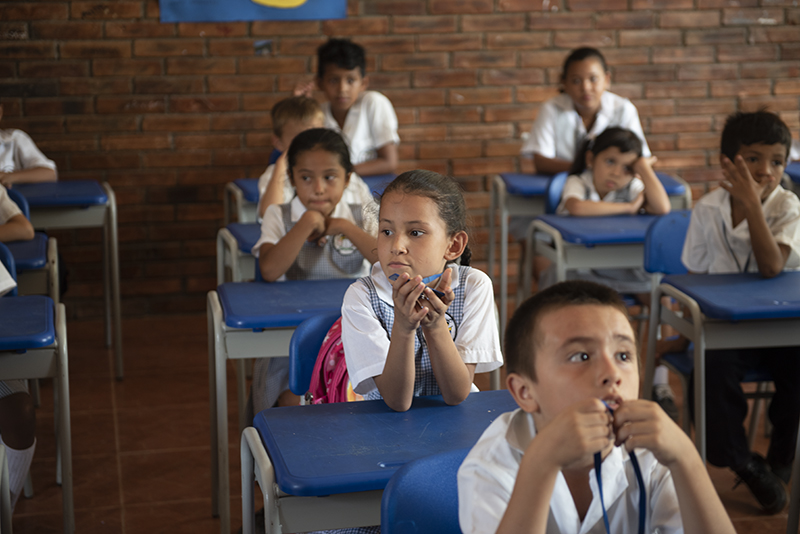
It’s become a buzzword and, since the beginning of the century, we’ve used it to apply to everything, including technology, of course, but also economics, fashion and culture and, definitely, education. From the Latin word innovare (the prefix in means in or within and novare is a verbal form of the word novus , meaning new), the term innovate seems to refer to the introduction of something new.
Applied to education, there are multiple definitions, theories and forms of educational innovation. However, in this article we aren’t going to discuss theories or definitions. We’ll go straight to the practice to highlight ten projects which, from a pedagogical standpoint, introduce new and “more effective and efficient” ways of teaching into the classroom. With this post we conclude our series on the 2022 HundrED Global Collection, in which we’ve reviewed some of the projects featured in the report.
RETHINKING SCHOOLS AS NEW LEARNING SPACES
Escuela nueva: a model of education for vulnerable environments.
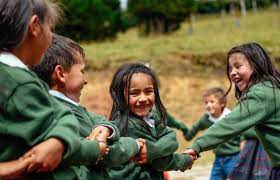
One of the seven Hundred Hall Of Fame Innovations and the only from Latin America that’s been recognised. Escuela Nueva was created just over 30 years ago to improve the education received by children in rural schools in Colombia. Today it’s become a model of education for vulnerable environments that’s been successfully applied in 21 countries (with institutional support in many of them). How does it work? The students work in groups but each of them has his/her own personalised learning guide. The teacher proposes a topic and the children work on it first individually and then in groups. It’s a completely student-centred and active methodology based on “learning by doing”. The children form part of a self-organising and self-governing group under the supervision of the teacher. Teacher training also plays an important role in the Escuela Nueva model and the teachers are trained using the same methodology as that applied to the students.
Agora: School without lessons
The Netherlands
Agora is a school without lessons, without classrooms and without a curriculum. At Agora everything begins with the students. Their concerns lie at the heart of their own learning. They all decide, in partnership with their tutor, which “challenge” they’ll focus their work on. They begin to prepare it together by asking each other a set of questions: What will I learn? Who can I cooperate with to achieve a great end result? How long will it take me? After this initial preparation, the students prepare an “action plan” in which they decide who’ll be able to help them through each of the steps and where they’ll get the information from. During the implementation phase of the project, the students record all their progress, including where they’ve found the information, what they’ve had difficulties with and why, how they’ve resolved them and so on. At the end of the challenge the students submit their final work. Of course, they can do so in different ways, such as a video, a sculpture, a painting or a field trip, and they’ll show the others what they’ve learnt. The teachers, parents and students can attend the presentation at the student’s invitation. Finally, they’ll have a chat with their tutor to reflect on the whole process.
Community Learning Labs: Building education through dialogue
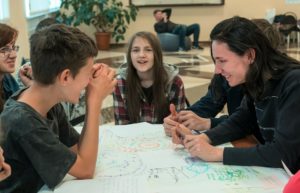
Community Learning Labs promotes inter-generational dialogue between students, parents and teachers, enabling them to build a kind of education that makes a better future possible together. Starting with a future ideal, the participants examine how it can be achieved through education, what skills will be needed to build it and how it can be taught and learnt. They then structure initiatives to carry it out, dividing themselves into groups to do so. This helps to generate a feeling that change is possible. Everyone then discusses and shares their ideas, encouraging collaboration and dialogue and turning education into a platform for co-creation and cooperation. Since its creation in Russia in 2016, it’s been implemented in 30 cities in eight countries, including Belarus, Latvia and Uzbekistan (for the time being, the working materials are only in Russian, although they’re working on their translation into English).
Dignitas Project: Making school an exciting place
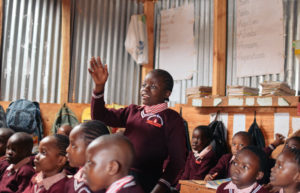
Dignitas seeks to turn schools into exciting places that enable children to develop the skills and character they need to prosper in life. It does so through the educators, by training them and equipping them with the tools required for them to develop instructional leadership skills that enable them to create a classroom culture conducive to learning and participation. Dignitas turns the educators into catalysts of change in vulnerable schools. The programme’s teachers encourage the students to take part in the lessons, ask questions, reason and cooperate with their classmates.
Manzil Mystics: Learning through music
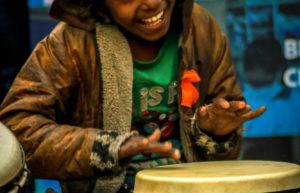
In India, most low-income state schools face the problem of poor levels of attendance, chiefly due to a lack of interest in education. Learning Through Music is a flagship programme of the Manzil Mystics organisation which aims to create safe spaces, bring happiness, instil confidence, foster creativity and activate the true potential of the children that take part in it. They learn to sing, write and compose songs and express their feelings and aspirations through music. It also acts as a magnet to increase school attendance and triggers other essential elements such as self-confidence, leadership and socio-emotional learning.
Defy Project: Design your own education and create it
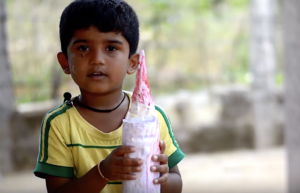
In the DEFY (Design Education for Yourself) Project the goal is to change the way people think and ignite the spark of passion in each of the students so that they can learn to believe in their ability to educate themselves, others and their communities. In the DEFY Project education is much more than the mere transmission of knowledge, as it’s also a process of self-discovery and understanding of the needs of the local and global environment. Firstly, the community builds a learning space suited to their tastes and needs and then, with a computer and the internet, they begin working on projects in keeping with their preferences and interests. The students thus develop the skills they’re most passionate about and search for the knowledge they’re most interested in. They try, fail and try again, without any fear of judgement. Finally, they develop the confidence they need to embark on their own journey. In essence, they learn “how to learn” and do so within a community of people doing the same thing that supports them.
Join for Joy: Gamifying School
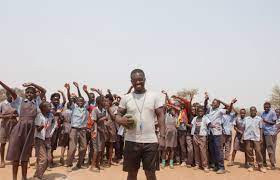
Join for Joy This programme teaches primary school teachers in the most rural areas of East Africa to implement sporting and recreational activities in the local schools’ curricula, transforming the schools into “gamified” learning spaces. By doing so the children are encouraged to attend school and dropping out is prevented. Through play, the teachers learn how to teach the children to protect themselves against diseases such as AIDS, malaria and COVID-19. Topics that are taboo in many rural areas, such as sexual violence, child marriages and gender inequality, are discussed. The sporting and recreational activities are specifically aimed at developing the children’s life skills, including assertiveness, handling of emotions, empathy, self-confidence and respect. For children with disabilities, one of the most vulnerable groups, sports and games are powerful ways of making them look at their options rather than their limitations. Since 2011 the programme has reached more than 450,000 children and expanded to five countries.
DISRUPTIVE INNOVATION AND ENTREPRENEURSHIP
The metis fellowship: searching for dreamers to change education.
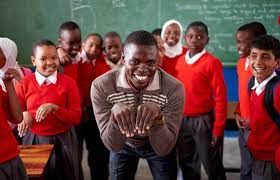
The aim of Metis is to find local innovators with ideas geared towards reinventing teaching and learning. It makes it easier for them to implement their ideas by helping them to obtain the resources, mentors and community that they require. To date, it’s supported 63 “dreamer” scholars who’ve created high-quality learning experiences with an impact on 1.3 million students in Kenya. It applies a domino effect model that uses the power of the networks, resources and access to like-minded people to inspire change.
Innovamat: Changing the way we learn maths
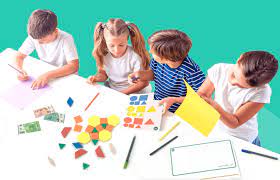
Traditional maths teaching has proved to be ineffective for many students. To reverse this trend, Innovamat has developed research-based curricular maths resources. With its methods, the children learn maths through manipulative material and highly dynamic lessons focused on problem-solving, communicational skills and critical thinking. Innovamat brings a change in traditional maths instruction and learning and it currently operates at more than 1,200 schools in Spain, Chile, Ecuador and Mexico, reaching 200,000 students and more than 12,000 teachers.

Self-Sustainable School Model
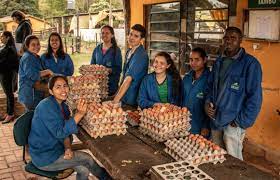
In Paraguay six out of ten children don’t finish secondary school because access to high-quality education is limited and expensive. The Self-Sustainable School Model addresses this problem by providing affordable, high-quality secondary education to low-income and mainly rural communities in Latin America and Africa. This model guarantees the quality and relevance of the programme by providing the students with the opportunity to learn entrepreneurial skills, thus helping to make the school economically viable. The students learn how to run competitive businesses and, while doing so, broaden their horizons with regard to what’s possible and improve their quality of life.
Why this selection? What features do these projects share? On the basis of these features, can we provide some keys to the definition of educational innovation? Let’s see:
- The student lies at the centre of the system. This is a recurrent feature in the history of pedagogical innovation and one which appears to have ceased to play a “secondary role” during this decade to become the key pillar of educational systems (at least at the theoretical level of educational policies). In contrast to the traditional teaching system, in which the students are mere passive recipients of information, in these educational proposals the students are placed at the centre of the whole process, focusing on their characteristics, abilities, context and educational needs as the basis upon which their learning is designed. The students become involved and play active roles in their own education. They decide on what, how and when.
- The teachers become mediators and designers of experiences. In all the innovations featured above the teachers have a key role to play, but it’s a very different role from that of the traditional learning concept. The teachers become mediators between knowledge and the students: they guide and help the students to take ownership of the learning and they also design, develop and propose activities that help the students to carry out their self-learning process.
- Technology complements and helps but doesn’t replace. The new technologies are conceived as a valuable and fundamental support, but never as a substitute for the teachers’ role in the classroom. Moreover, the teachers’ role becomes even more important, given that, on the one hand, they have to “hybridise” their pedagogical and didactic performance with technology so as to increase its effectiveness, and, on the other, they guide their students through the proper use of these new technologies.
- Collaboration. Whether it’s among students or teachers and students or it includes the families and communities, cooperation and collaboration in their numerous forms are particularly relevant in educational innovation projects. It’s evident that current-day society requires (and will require) increasing collaboration between everyone to overcome the major challenges. Moreover, teamwork isn’t just an ability to be learnt in itself, as it also contributes to the development of other important skills, such as responsibility, empathy, interdependence and critical thinking.
- New contents/new competences: There appears to be a generalised consensus that a comprehensive kind of education at this stage of the century must necessarily include the development of a range of skills that can help learners to live in a complex and changing society. Mere academic knowledge is no longer enough. The need to teach these skills is an educational innovation in itself. But there are also new skills, contents and capacities that require new teaching methods and processes. Can anyone imagine how to teach something like empathy or perseverance with a traditional model in which the teacher speaks without looking and the students listen without paying attention or understanding?
- The importance of the context: the socio-cultural and local context in which the teaching unfolds is also of fundamental importance in all educational innovation projects. And so it should be; the environment in which a person lives and develops should form part of his/her education and learning process. This relationship with the context can (and should) take place in a number of ways, in order to design a kind of learning that’s suitable for the context of each student, to use this context as the object of study and to involve the community and families in the students’ education.
All the projects featured above propose new ways of teaching and learning that advocate a shift towards a model more in keeping with the needs of today’s world and its agents, the protagonists of the future, the students. They provide important hints and lessons that we shouldn’t lose sight of. Let’s capitalise on the experience and wisdom of those who’ve been there before. Let’s lead by example.
*This article forms part of a series in which we analyse the initiatives and programmes featured in the HundrED report. In the first post of this series we explain the selection criteria and how the HundrED report is drawn up. In the second we explain and analyse some of the digital initiatives and programmes for socio-educational intervention in vulnerable contexts . In the third we analyse initiatives devoted to teaching and learning the skills for 2030 or the so-called 21st-century skills . In the fourth we focus on programmes that develop citizenship and digital skills.
You may also be interested in…
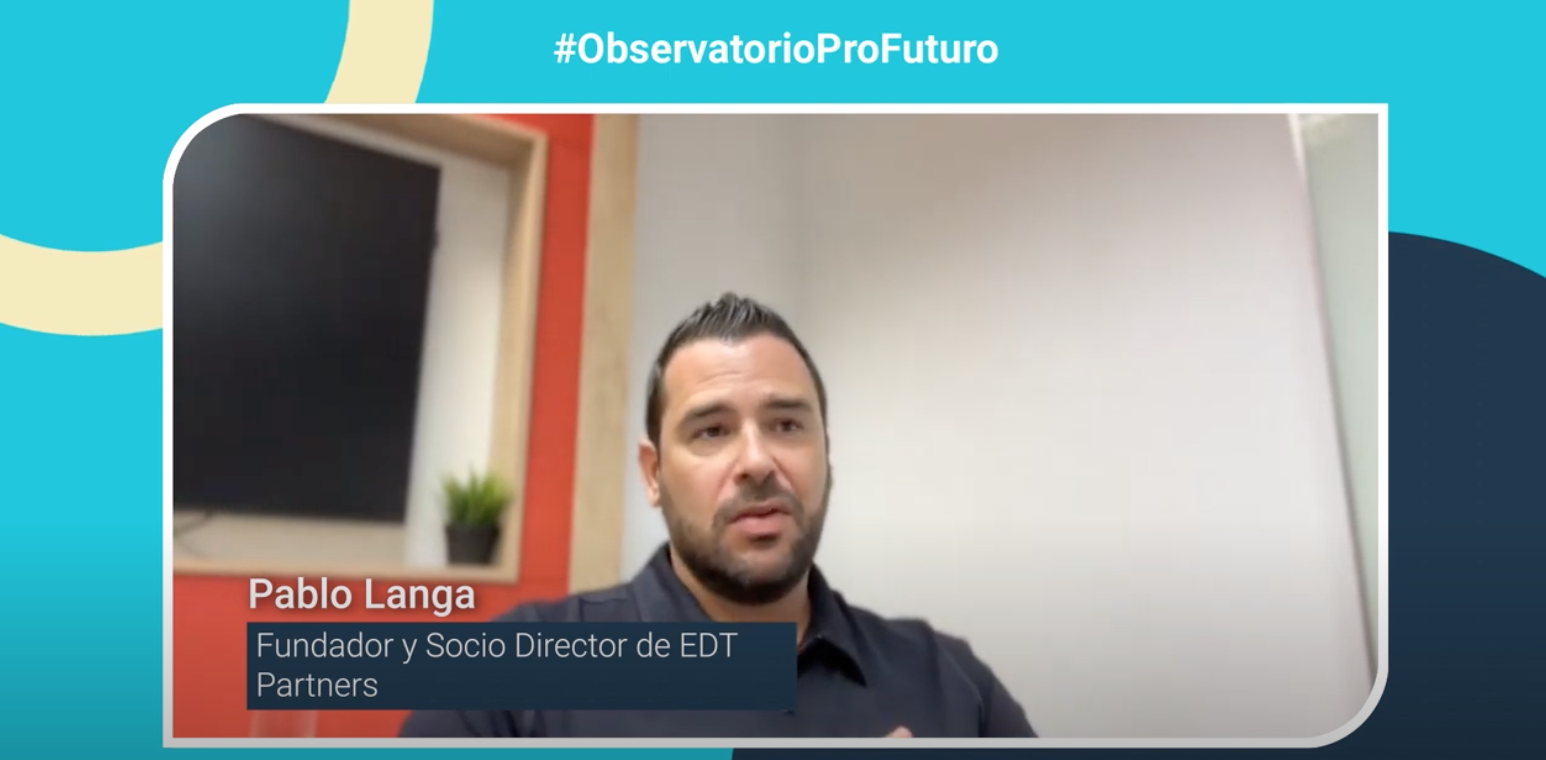
Observatory Talks
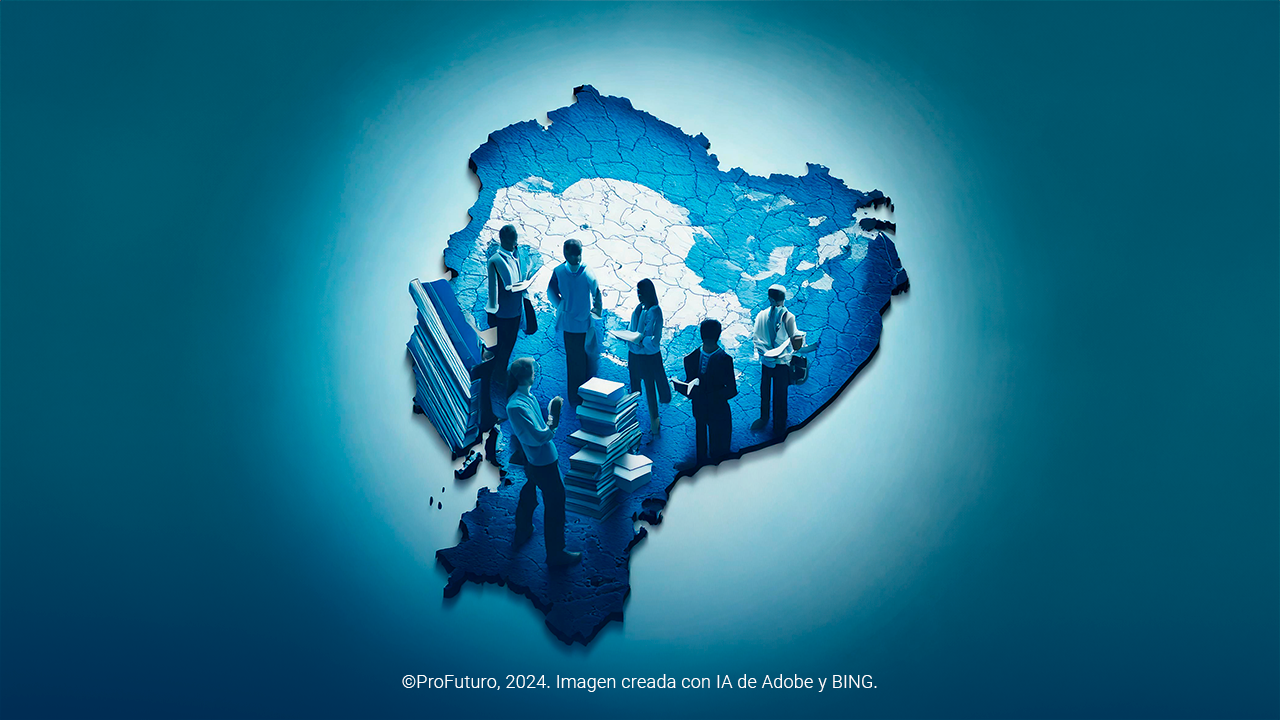
Observatory Inspiring Experiences
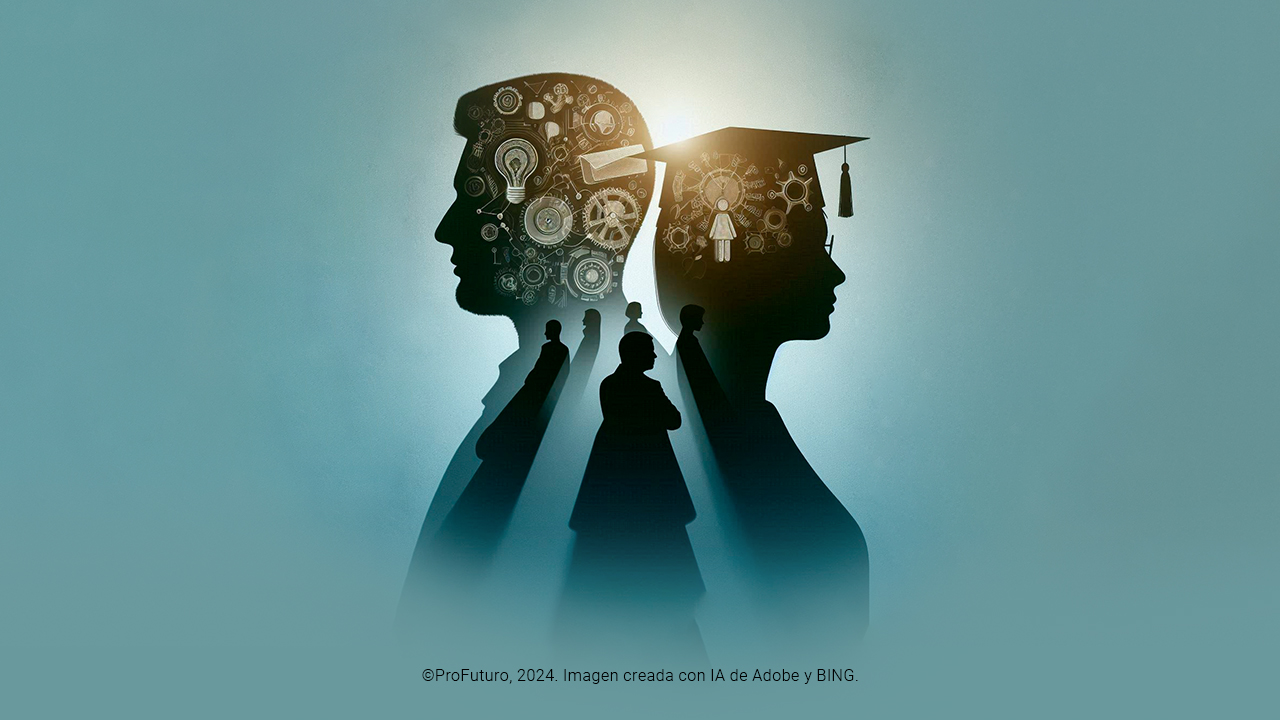
Observatory Trends
Centers, Projects, and Initiatives
The research centers, projects, and initiatives based at the Harvard Graduate School of Education are creating new horizons in education by putting innovative ideas into reality. These groundbreaking efforts bring together communities of scholars, practitioners, advocates, and learners to test theories, push research into practice, and develop solutions to improve education outcomes for all.
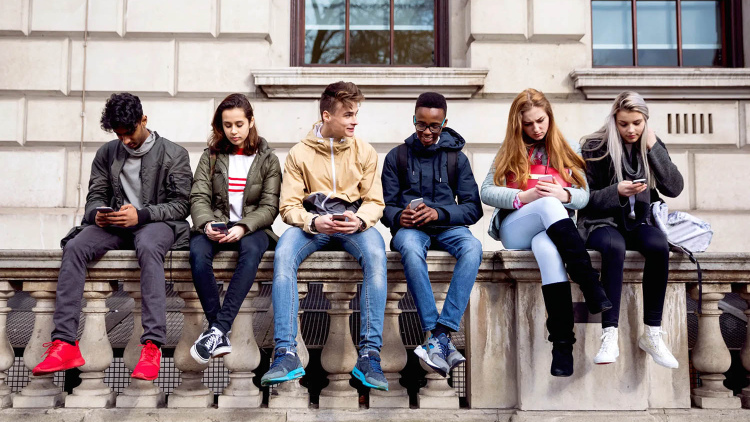
Center for Digital Thriving
Creates knowledge and research-based resources that help people thrive in a tech-filled world
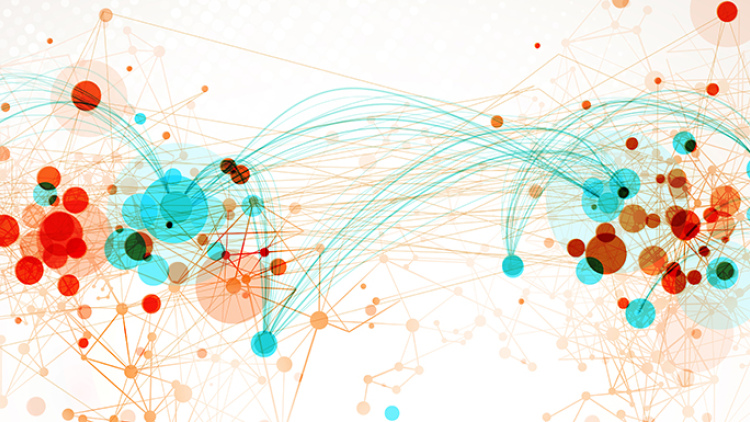
Center for Education Policy Research
Puts vast data to practical use to address education policy questions and improve outcomes

Center on the Developing Child
Drives research-based innovations to achieve meaningful outcomes for children facing adversity

Democratic Knowledge Project
Reimagines civic education in support of constitutional democracy through partnerships with K-16 schools
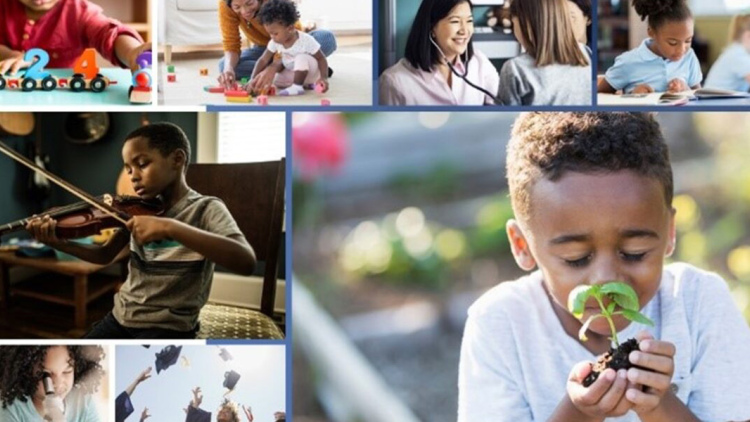
Supports the cradle-to-career place-based partnership field, driving systems-level change and opening personalized pathways to success for all children and families
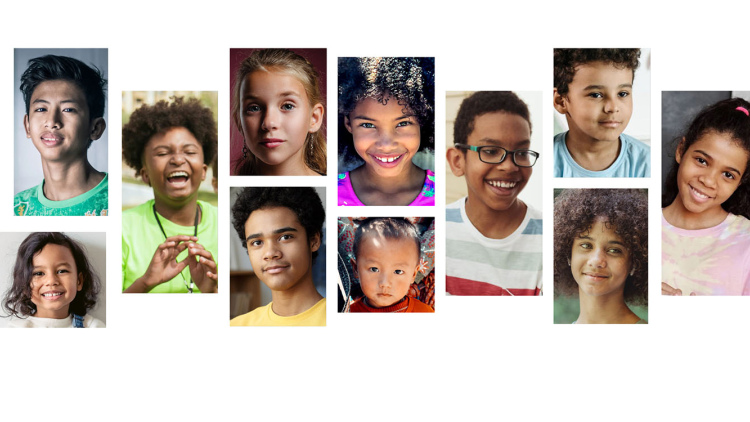
Immigration Initiative at Harvard
Advances interdisciplinary scholarship and hands-on research about immigration policy and immigrant communities
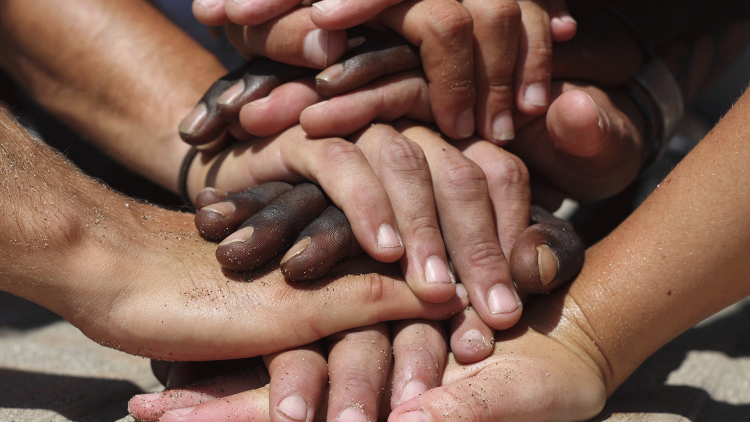
Making Caring Common
Establishes guidelines for developing students with a solid moral compass and a passion for making a difference
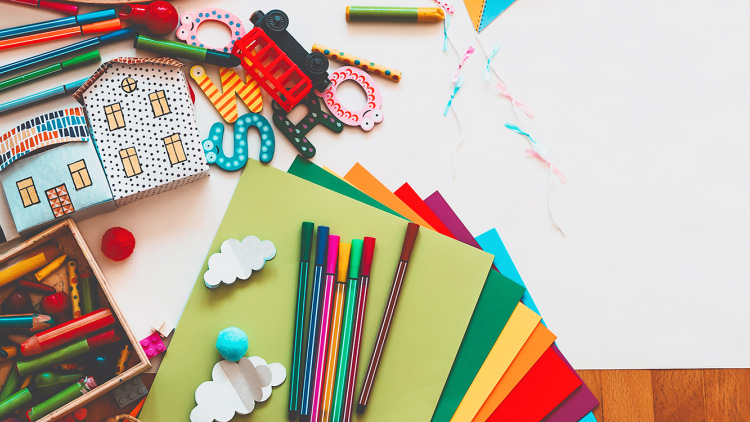
Project Zero
Creates and fosters dynamic ideas and practices that help teachers zero in on creative ways to teach and inspire students
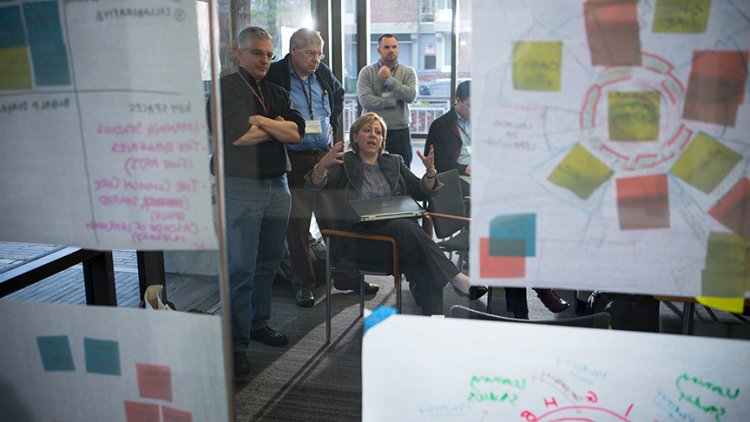
Public Education Leadership Project
Works to improve leadership competencies of public school administrators through professional development to drive greater educational outcomes
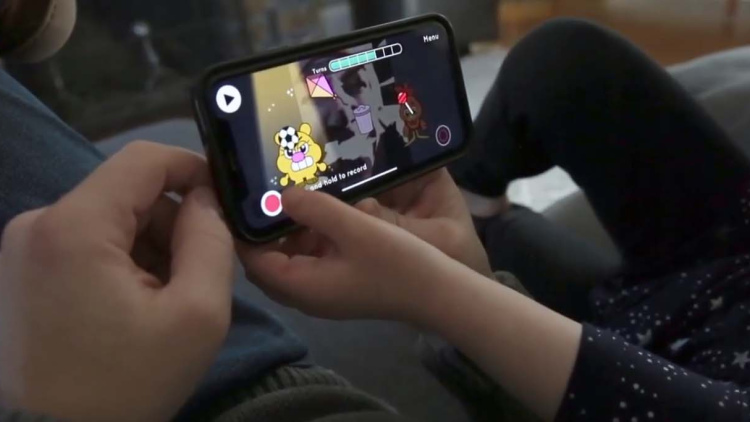
Reach Every Reader
Develops tools to support the vision that all children can develop the skills, knowledge, and interest to become lifelong readers
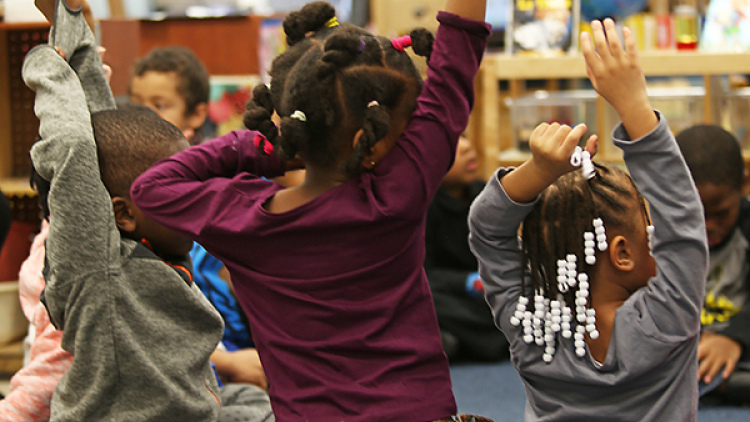
Saul Zaentz Early Education Initiative
Provides educators with the knowledge and resources to cultivate optimal early learning environments and experiences for students
Faculty Research Initiatives and Labs
In addition to the research centers above, faculty at the Harvard Graduate School of Education conduct individual projects across research, practice, and policy, collaborating with HGSE students and with colleagues and organizations across the field of education.
- Adolescent Ethnic-Racial Identity Development (AERID) Laboratory
- The Black Teacher Archive
- C.A.R.E.S. Lab
- Collaborative on Academic Careers in Higher Education (COACHE)
- Creative Computing Lab
- Data Wise Project
- Deeper Learning Dozen
- Gaab Lab
- Global Education Innovation Initiative
- Justice in Schools
- Language Diversity & Literacy Development Research Group
- Language for Learning
- Leadership Initiative for Faith and Education (L.I.F.E.)
- Project on the Next Generation of Teachers
- READS Lab
- Refugee REACH
- The Rowe Lab
- SEED Lab
- Transformative Justice Initiative
